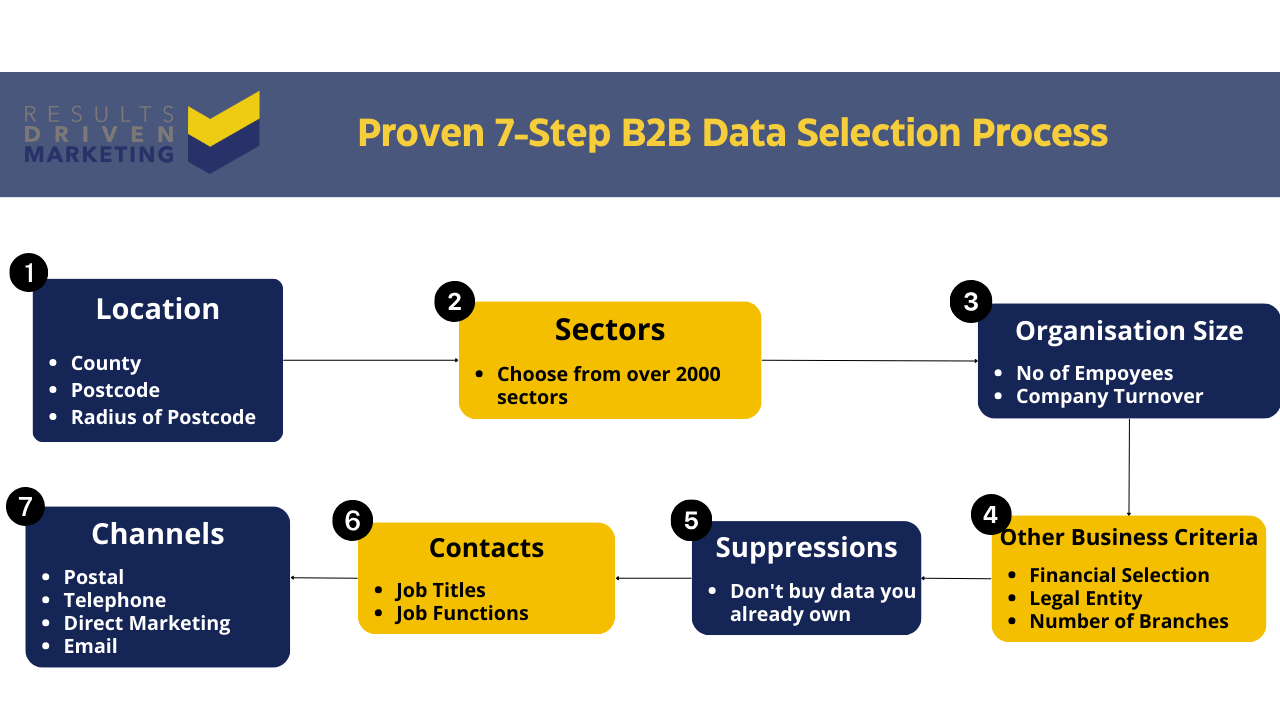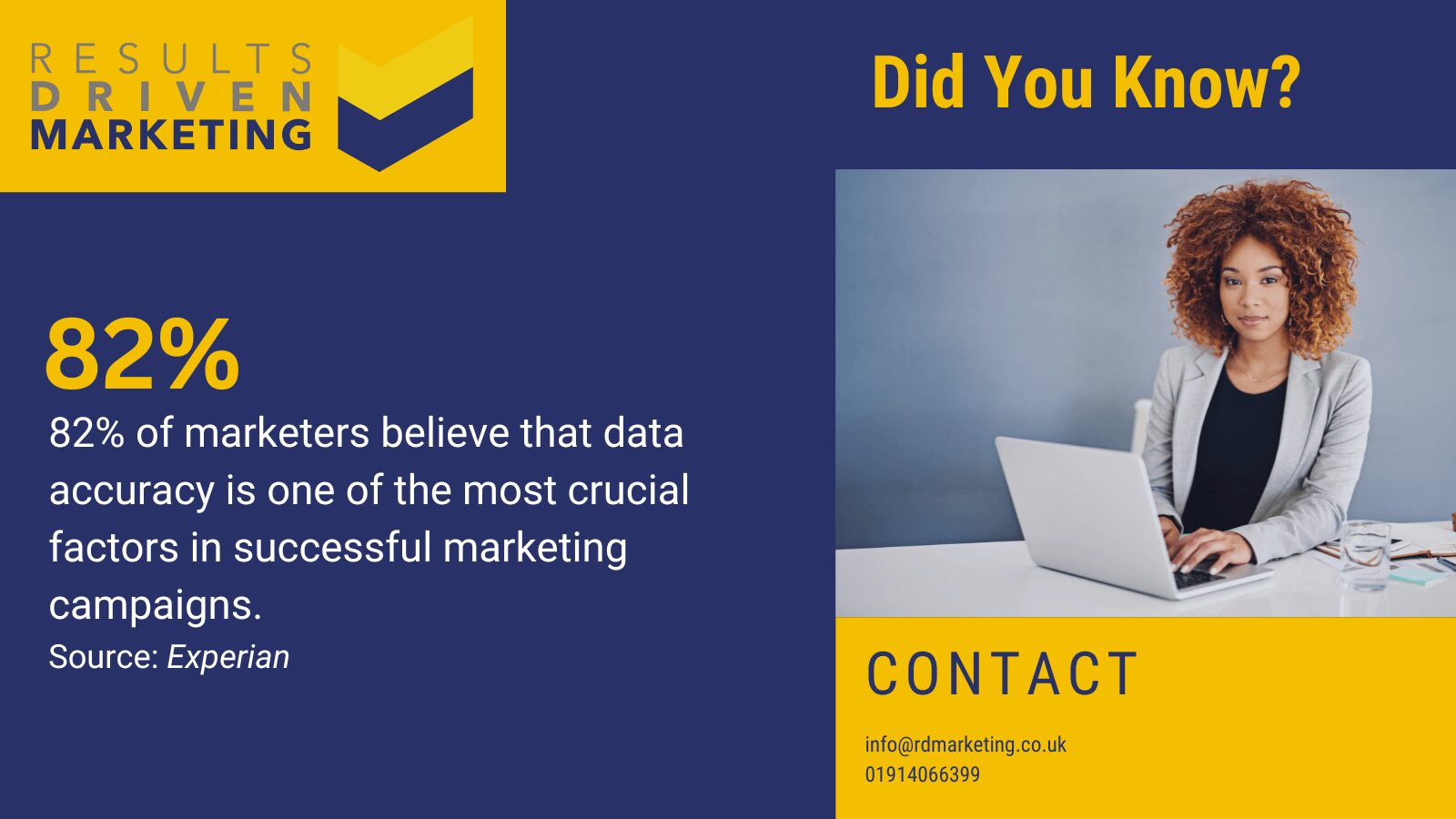
How to Source Accurate Marketing Data for A Decision-Maker
Table of contents:
Introduction to the Importance of Accurate Marketing Data for a Decision-Maker
In the hustle and bustle of today’s business world, the choices leaders make can make or break a company. But what really defines a decision-maker, and why is having reliable marketing data such a game-changer for their success?
Definition of a Decision-Maker and Their Role in Businesses
A decision-maker is typically someone at the helm of an organisation—whether it’s a CEO, CMO, or marketing director—responsible for steering the company in the right direction. Their role involves making critical business decisions that can impact everything from daily operations to long-term strategies.
They rely heavily on data to inform these decisions, ensuring they align with business goals and market realities. In essence, the decision-maker is the individual who holds the keys to the company’s future, balancing risk with opportunity.
The Impact of Accurate Marketing Data on Decision-Making
For decision-makers, accurate marketing data is not just a tool—it’s a necessity. High-quality data serves as the foundation for making informed decisions that drive business growth. Whether it’s choosing the right market to enter, identifying customer segments, or allocating budget to various marketing channels, the accuracy of the data underpinning these decisions is crucial.
Inaccurate or incomplete data can lead to misguided strategies, wasted resources, and missed opportunities. For example, if a decision-maker relies on outdated or incorrect data, they might target the wrong audience, leading to poor campaign performance and diminished ROI. On the other hand, with accurate marketing data, decision-makers can:
- Identify emerging trends and capitalise on them.
- Optimise marketing spend for maximum impact.
- Tailor messaging and product offerings to specific customer needs.
- Improve customer acquisition and retention rates.
In essence, the accuracy of the data can directly influence the success or failure of a company’s marketing efforts.
Common Challenges Faced by Decision-Makers in Sourcing Reliable Data
Despite the importance of accurate marketing data, sourcing it is often easier said than done. Decision-makers face several challenges in this area, including:
Data Overload: With the sheer volume of data available today, it’s easy for decision-makers to feel overwhelmed. Sorting through massive amounts of data to find what’s truly relevant can be a daunting task.
Data Quality: Not all data is created equal. Decision-makers must navigate the complexities of ensuring data is not only accurate but also relevant, timely, and complete. Poor-quality data can lead to poor-quality decisions.
Data Integration: In many organisations, data is siloed across different departments or platforms. Integrating these disparate data sources into a single, coherent view can be challenging, yet it’s essential for making informed decisions.
Cost and Access: High-quality marketing data often comes at a cost, and decision-makers need to balance the expense with the potential return on investment. Additionally, accessing the right data can be difficult, especially when dealing with international markets or niche segments.
Regulatory Compliance: With data protection laws like GDPR and CCPA, decision-makers must ensure their data sourcing practices comply with legal requirements. This adds an additional layer of complexity to the data sourcing process.
Given these challenges, it’s clear why decision-makers need to partner with reliable data providers who can deliver accurate, relevant, and compliant data.
At Results Driven Marketing, we offer a range of services to help decision-makers overcome these obstacles. From B2B Data and Direct Mail Data to Telemarketing Data, Email Address List Data, and more, we provide the tools you need to make informed decisions. Explore our full range of services to see how we can support your data-driven decision-making journey.
Understanding Marketing Data: Types and Sources
For any decision-maker, understanding the different types and sources of marketing data is fundamental to making informed, strategic decisions. Marketing data comes in various forms and from multiple sources, each with its own strengths and limitations. In this section, we’ll explore the primary types of marketing data, the sources from which they originate, and the pros and cons of each from a decision-maker’s perspective.
Different Types of Marketing Data
Marketing data can be categorised into several key types, each offering unique insights into different aspects of your business and market:
Customer Data:
-
- What it is: Customer data includes information about your customers, such as demographics, purchase history, preferences, and behavior. This type of data is crucial for understanding who your customers are and how they interact with your brand.
- Why it matters for decision-makers: For a decision-maker, customer data is essential for segmenting audiences, personalising marketing efforts, and improving customer retention. It helps tailor strategies to meet the specific needs and preferences of your target market.
Market Research Data:
-
- What it is: Market research data is gathered through surveys, focus groups, and industry reports to provide insights into market trends, consumer preferences, and competitive landscapes.
- Why it matters for decision-makers: This type of data helps decision-makers identify opportunities and threats in the market, making it possible to adjust strategies in response to changing market dynamics.
Transactional Data:
-
- What it is: Transactional data includes records of sales, purchases, and other financial transactions. It provides a clear picture of revenue streams and customer purchasing behaviors.
- Why it matters for decision-makers: For decision-makers, transactional data is invaluable for analysing the financial health of the business, identifying profitable customer segments, and optimising pricing and inventory management strategies.
B2B Data:
- What it is: B2B data encompasses information about other businesses, including firmographics (such as company size, industry, and location), purchase behavior, decision-making processes, and the key contacts within those organizations. This type of data is critical for businesses that operate in the B2B space and seek to build relationships with other companies.
- Why it matters for decision-makers: For decision-makers in B2B environments, this data is crucial for identifying potential business clients, understanding the needs and pain points of other businesses, and crafting targeted marketing and sales strategies. It enables better lead generation, more effective account-based marketing, and stronger partnerships by ensuring that your outreach is relevant and tailored to the right audience.
Sources of Marketing Data
Marketing data can be sourced from various places, each offering different levels of accuracy, relevance, and insight. Understanding these sources is crucial for any decision-maker looking to leverage data effectively.
First-Party Data:
-
- What it is: First-party data is data collected directly from your own audience, through channels such as your website, CRM systems, and direct customer interactions.|
- Pros: Highly accurate and relevant, as it comes directly from your customers. It’s also compliant with privacy regulations, since you control how it’s collected and used.
- Cons: Limited in scope, as it only includes data from your existing customer base or website visitors.
- From a decision-maker’s perspective: First-party data is extremely valuable for decision-makers because it provides insights that are directly applicable to your specific business. However, the challenge lies in collecting enough data to gain significant insights.
Second-Party Data:
-
- What it is: Second-party data is another company’s first-party data that you purchase or partner to access. It’s often shared between non-competing businesses or through strategic partnerships.
- Pros: Expands your data pool without the need to collect it yourself, providing additional insights into new customer segments or complementary markets.
- Cons: Less control over how the data was collected, which may affect its relevance and accuracy.
- From a decision-maker’s perspective: For decision-makers, second-party data can enhance your understanding of your market and customers. However, it’s important to ensure that the data aligns with your business needs and that the provider is trustworthy.
Third-Party Data:
-
- What it is: Third-party data is aggregated from multiple sources by a data provider and sold to other businesses. This data often includes a wide range of demographic and behavioral information.
- Pros: Provides extensive data coverage across various demographics and behaviors, useful for broadening your market reach.
- Cons: Can be less accurate and relevant, as it’s collected from multiple, often anonymous, sources. There’s also a higher risk of compliance issues with data privacy regulations, thats why it is so important to work with Results Driven Marketing.
- From a decision-maker’s perspective: While third-party data offers a broader view, decision-makers must be cautious about its quality and relevance. It’s best used to complement first- and second-party data rather than as a standalone source.
Pros and Cons of Each Data Source from a Decision-Maker’s Perspective
Understanding the pros and cons of each data source is crucial for decision-makers who want to maximise the value of their marketing data:
- First-Party Data: Offers the highest accuracy and relevance but may be limited in scope. Ideal for personalised marketing and customer retention strategies.
- Second-Party Data: Expands your data reach with relatively high accuracy. However, it requires careful consideration to ensure it aligns with your business objectives.
- Third-Party Data: Provides broad coverage but may lack the depth and precision needed for specific marketing goals. It’s most effective when used in conjunction with first- and second-party data.
At Results Driven Marketing, we understand the complexities of sourcing and utilising marketing data. We offer a range of services, from B2B Data and Direct Mail Data to Telemarketing Data and Email Address List Data, designed to meet the specific needs of decision-makers. Explore our full range of services to see how we can help you leverage the right data for your business decisions.









